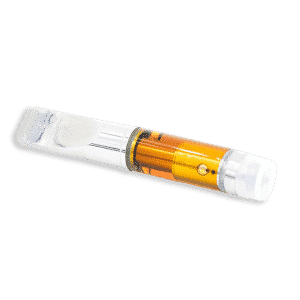CBD is one of the compounds found in cannabis. CBD has been proven to have many significant medical benefits and unlike THC, which makes people feel stoned, CBD rather counteracts the psychoactivity of THC. The strains of marijuana that are rich in CBD are non-psychoactive or less psychoactive than THC-dominant strains, thereby making them appealing for patients looking for relief from conditions such as pain, anxiety, depression, inflammation, or seizures. One of the major benefits of CBD rich cannabis is the fact that it does not come with disconcerting feelings of lethargy or dysphoria.
Many clinical as well as scientific studies have underscored the potential of CBD as a treatment for a wide range of diseases such as diabetes, depression, alcoholism, arthritis, cancer, epilepsy as well as other neurological disorders.
In the medical field, the term immune health is quite broad and it could provoke so many different interpretations. That said, many scientists have also described the immunomodulating properties of active cannabinoids such as CBD and have linked them to the treatment of certain autoimmune conditions like rheumatoid arthritis, as well as HIV/AIDS. According to scientists, cannabidiol can also be used by healthy individuals to prevent certain conditions as well as to boost the overall immune health. Thus, it is clear that the endocannabinoid system (ECS) and the immune system are very much interrelated.
For us to understand the potential effect of CBD on the body’s immune system, it is paramount to first of all have at least basic knowledge on how the endocannabinoid system works. The endocannabinoid system, also known as ECS is simply a network of cannabinoids and receptors that work together in a bid to regulate most functions of the human body. Researchers have asserted that one of these functions is its role as an immuno-cannabinoid modulator. This assertion can be explained by the fact that the communicative neurotransmitters in the ECS give instructions as well as works as a signaling mechanism for the functional machinery involved in the immune response. Among other functions, these instructions communicate with the body’s immune system on when, where as well as how strongly to engage defense.
Some researchers have also asserted that the endocannabinoid system could also work to notify the body of an incorrect autoimmune response. However, this happens in situations wherein the defense cells start attacking healthy organs as well as tissues. This assertion, therefore, goes a long way to also explain why cannabinoids function well and effectively treats some autoimmune conditions such as Parkinson’s disease, Lupus, rheumatoid arthritis and multiple sclerosis.
Even though more research needs to be carried out on this subject in a bid to have a more thorough understanding of the molecular pathway that should be used, it is a known fact that cannabinoids like CBD helps in reducing painful and inflammatory responses in humans, especially on those suffering from the aforementioned autoimmune conditions. It is apparent that the efficacy of medical cannabis as analgesic lies in the endocannabinoid system, which plays a vital role in how the body regulates and manages pain.
Moreover, it has also been proven that CBD in conjunction with the endocannabinoid system can promote new cell regeneration as well as reduce autoimmune-induced cell degeneration. It is evident that when an individual suffers a serious traumatic event such as a stroke, heart attack or severe brain injury, the nerve cells become severely damaged, due to inflammation-induced immune response. When CBD is administered in the right therapeutic doses, the nerve cells can either be protected from further damage or the damage may be reversed through a process known as neurogenesis.
Many studies have proven that one of the major roles of the endocannabinoid system is to regulate and maintain great communication between the two adaptive immune responses (humoral response and the cell-mediated response) that complement each other. On this note, it can thus be speculated that the continuous administration of cannabinoids like CBD will result in improved health as well as overall balance of the body’s immune system. Therefore, it can be argued that CBD together with the endocannabinoid system are very much instrumental in maintaining a healthy and proper functioning immune system.
It is worthy to note that even the leading experts of cannabis do not have enough backing to out rightly claim that CBD has this or that effect on the immune system. Several studies have made it rather clear that cannabinoids have some influence on the overall immune response, even though it is still not clear on how to manipulate it or administer treatments in a bid to achieve the best results possible. Therefore, it is advisable to first of all consult with a physician or a clinical professional before indulging in the use of CBD for optimal immune health.
How To Get CBD (Cannabidiol) Products
If you are interested in trying CBD to treat medical conditions, for general wellness, or for your pets, checkout CBDbay.app














